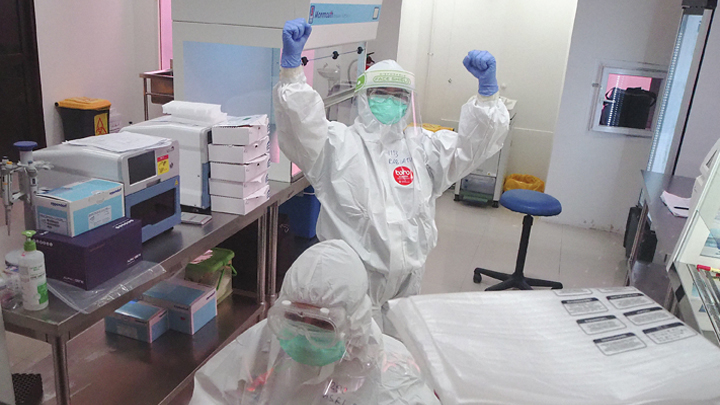Duel at Tower Seven
Tuesday, May 26, 2020
arsip tempo : 171401114137.

SAEPUL Jamal ordered a tiramisu cake that says “Happy 50 Days at Wisma Atlet.” He celebrated his stay at the Covid-19 emergency hospital in Kemayoran, Central Jakarta, by eating the cake with other patients as well as nurses on Thursday, May 14. There is no sign that he will be discharged anytime soon even though he was no longer showing symptoms of the novel coronavirus disease.
The 44-year-old man came to Wisma Atlet (Athlete
...
Subscribe to continue reading.
We craft news with stories.
 For the benefits of subscribing to Digital Tempo, See More
For the benefits of subscribing to Digital Tempo, See More








